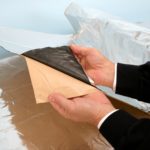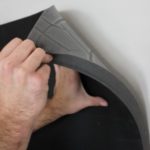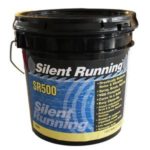
Campers and road trippers love being on the road — but most find themselves wishing they could leave those tiresome thumps and clunks behind. Whether you live in your RV full-time or use your vehicle for the occasional adventure, a little bit of soundproofing will go a long way in preserving your van’s quality – and your sanity.
Why You Should Soundproof Your RV
People generally choose to soundproof their RV to mitigate travel noises and improve the sound quality. Of course, sounds won’t disappear entirely — you’re still operating a mobile vehicle on the road, so some level of noise is inevitable.
Soundproofing your van from top to bottom will improve your acoustics, reduce irritating outside noises, minimize vibrations and ensure a more comfortable ride. All in all, improved sound quality will make your trips more enjoyable. You’ll be able to enhance the sounds you want to hear, whether that’s your music, conversations with your passengers or the sweet sounds of nature outside your window.
RV Soundproofing Options
When it comes to soundproofing, you’ve got a few options to consider. Depending on your budget range, Soundproof Cow offers a wide variety of options geared toward effective RV soundproofing. Between a selection of acoustic foam and cotton panels, you should be able to find a material that suits your needs.
The most important area to focus on is your floor. Laying carpets is a cost-effective option to absorb noise and upgrade your van’s comfort level. Of course, regular carpet can only go so far in dulling the sounds of the road. We recommend a proper soundproofing composite designed specifically for RVs, like our QuietBarrier™ material.
You can also layer materials to improve insulation across your floor. Your second layer should include a dense sound barrier to minimize noise from the road, tires and exhaust. Our RoadBlockR Sound Deadening Material can help you accomplish this.
View this post on Instagram
Four Tips for Soundproofing Your RV
Traveling in an RV means handling sounds coming in from all sides. From road noise and passing traffic to the sounds coming from your own engine, there are plenty of areas that need sealing. Here’s our top four tips to get started:
- Insulate your interior: Insulate your floor using padded material. Pay attention to the rest of your interior, including caulking any gaps in your walls, windows and ceiling.
- Soundproof your wheel wells: Vibrations from the road can lead to structural noise at an irritating decibel. Try spraying liquid sound deadener inside your wheel wells on a regular basis — as a bonus, this will help with rust prevention.
- Minimize vibrations: Generators and water pumps are common culprits for pesky rattling on the road. Place sound deadening material pads and closed-cell foams underneath your pump or generator to prevent excessive vibration.
Any Questions? Contact Soundproof Cow to Learn More
From your RV’s walls and floors to the engine and wheels, you’ve got no shortage of soundproofing opportunities. With just a few tools under your belt, you’ll be able to make a big difference in your RV’s sound levels as well as insulation capabilities.
Have any other questions about how to effectively soundproof an RV? Soundproof Cow is here to help. Contact us online or give us a call to learn more!
Learn More About Soundproofing Outdoor Spaces
Soundproofing Tips for the Backyard










